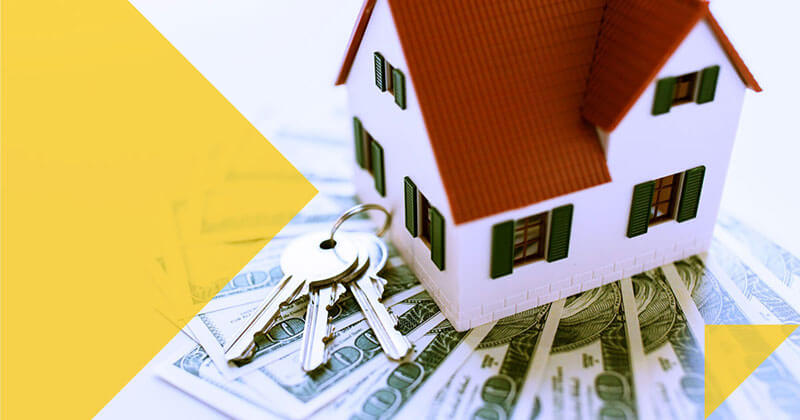
Home offers with earnest money: protect your chances
Are you looking at a home in a competitive market or are you in danger of losing your bid to another buyer? You may think that your only option is to go above the asking price to sweeten your purchase offer. However, there’s another way to get the seller’s attention. Including a home offer with an earnest money deposit (EMD) can help your offer stand above the rest.
Here’s everything you need to know on how a backup offer with earnest money can be ideal for your personal situation.
What is earnest money and an earnest home offer?
Also called “good-faith money,” earnest money is a deposit made in addition to the down payment to reassure the seller that you’re serious about purchasing a property. According to Trulia, “both the buyer and the seller want to make sure the deal goes through, and an earnest money deposit helps give the deal solid footing.”
This deposit is held in what’s known as an escrow account by a third party until the sale closes. While this account is open, the borrower is considered to be in escrow. If the deal goes through, this deposit is applied towards your down payment and closing costs.
The ins and outs of earnest money offers
- When do I pay it? In most cases, when making an offer to buy a house.
- How much earnest money do I need? The earnest offer amount varies depending on local market conditions. It’s typically a small percentage of the purchase price, but for new construction can be considerably more. In some markets, you may find that the standard earnest offer amount is a flat fee.
- Is an earnest offer amount still negotiable? If you’re placing an offer on a home from an individual seller, the deposit is most likely a negotiable amount.
- Is it a legal requirement? Although no law requires it, some sellers do.
How is earnest money paid?
By personal check, certified check or wire transfer. Never give an earnest money deposit directly to the seller, “make the deposit payable to a reputable third party such as a well known and established real estate brokerage, legal firm, escrow company, or title company,” says The Balance.
How to protect your deposit
Earlier we mentioned that when the sale closes, your good-faith deposit is put toward your down payment and closing costs. But what if the deal doesn’t go through? If the seller terminates the agreement, the EMD is returned. On the other hand, there are situations when your deposit may be forfeited or nonrefundable and kept by the seller. To protect your deposit, Realtor.com offers a list of earnest money mistakes home buyers should avoid. Here are three important “don’ts.”
-
#1: Don’t remove contract contingencies –
Keep in mind that if something that is specified ahead of time in the contract goes wrong, you’ll want to keep the right to cancel your purchase and reclaim the earnest money deposit.
-
#2: Don’t ignore contract timelines –
It’s your responsibility to stay on the schedule dictated by the contract.
-
#3: Don’t purchase a home on impulse that’s not a good fit –
Maybe you fell in love with the neighborhood but then decided the house doesn’t fit your growing family. Or maybe you chose to take a job in another city. Whatever the reason, remember that backing out of an offer because you changed your mind likely means you’ll have to forfeit your good-faith deposit. Therefore, make sure that you’re ready to commit before making an offer with an EMD.
Sources:
Earnest Money Deposit: How Home Sellers Can Keep It Fair and Square – Realtor.com
How Earnest Money Can Get You The House You Want – Trulia
Earnest Money Deposit – The Buyer’s Good-Faith Gesture – Home Buying Institute
How Earnest Money Can Get You The House You Want – Trulia
Earnest Money Deposit – The Buyer’s Good-Faith Gesture – Home Buying Institute
8 Earnest-Money Deposit Mistakes Home Buyers Live to Regret – Realtor.com
